Medical expert of the article
New publications
Preparations
Pills from thrush
Last reviewed: 23.04.2024

All iLive content is medically reviewed or fact checked to ensure as much factual accuracy as possible.
We have strict sourcing guidelines and only link to reputable media sites, academic research institutions and, whenever possible, medically peer reviewed studies. Note that the numbers in parentheses ([1], [2], etc.) are clickable links to these studies.
If you feel that any of our content is inaccurate, out-of-date, or otherwise questionable, please select it and press Ctrl + Enter.
Tablets from thrush are medicines that effectively fight with fungi of the genus Candida, affecting the mucous membranes of organs. Let's look at the most popular and effective tablets from thrush, the principle of their action, indications, contraindications and possible side effects.
Thrush is an insidious disease, which affects both adults and children. As a rule, the disease affects the mucous membranes of the genital organs and the oral cavity. Fungi of the genus Candida are always present on the mucous membranes, but the body's immune system does not allow them to penetrate inside. Once the protective functions of the immune system are reduced, the fungus penetrates the mucous membranes, and causes a disease called candidiasis or thrush. The immune system can reduce its protective functions due to diseases, both chronic and seasonal (colds, allergies) or the presence of pathologies in the body's work.
The main symptom of thrush is reddening of the mucous membranes, puffiness, the appearance of a white or yellowish coating of curdled consistency. If you remove the plaque without treatment, then on the affected surface of the mucosa will remain erosion. It causes severe itching and painful sensations, so the disease requires compulsory treatment.
To date, there are many drugs that help cure the disease. But self-medication is not recommended, because only after taking the tests, medical consultation and examination can get an effective treatment. In addition, self-medication does not give the desired results and can aggravate the course of the disease. All drugs that are used for treatment are divided into two groups:
- External application - ointments, solutions, creams, suppositories (suppositories), vaginal tablets. Such drugs are made on the basis of substances such as clotrimazole, miconazole, levorin, nystanine. Drugs effectively cope with fresh fungal lesions. The course of treatment is individual, but, as a rule, does not take more than 14 days. The main advantages of such treatment are a quick therapeutic effect, a minimum of side effects and safety of treatment. Disadvantage - effectiveness can only be in the treatment of mild forms of the disease, inconvenience to use drugs.
- For oral administration, that is, pills for thrush. Such treatment is used in relapsing form or diseases with severe course. Tablets from the yeast block the synthesis of sterol in the cells of the infection, which prevents the fungus from multiplying. Some drugs destroy fungi. The disadvantage of such treatment is the possible side effects, addiction to the drug and the transition of the disease to a chronic form.
Indications for the use of tablets from thrush
Indications for the use of tablets from thrush are based on the action of therapeutic drugs, that is, the restoration of microflora and treatment of Candida fungi. When a disease occurs, it is very important to seek medical help. Since without proper and effective treatment, the disease will constantly recur, and cause more painful and unpleasant symptoms. Of course, one tablet will hardly solve the problem with pathology, so an integrated approach to treatment is needed. Let's consider, in what cases, the use of tablets from thrush is justified.
- Ineffective treatment with douches, applications and other local remedies.
- The disease has a chronic form and recurs with the slightest damage to the immune system.
- The generalized form of candidiasis - occurs against a weakened immune system and diseases of the body. Characterized by a chronic form of the disease, it affects not only the mucous membranes.
- Features of the genitals (anatomical structure in women), which do not allow the use of local therapy for treatment.
Tablets from thrush, that is, antifungal drugs are divided into local and systemic use. By topical application means pills that are placed in the vagina, and under the system - tablets for oral administration.
After the tablet has got into the body, its active substances are absorbed and carried throughout the body. This stops the growth and reproduction of Candida fungi. The advantage of pills from thrush is that they help to cure any form of candidiasis. In addition, tableted treatment is considered the most effective, since the result occurs in a short time. With regard to the shortcomings of tablets, it is a contraindication to their use, side effects and toxicity.
Pharmacodynamics tablets from thrush
Pharmacodynamics tablets from thrush - this is the localization and mechanism of action of drugs. Let's look at pharmacodynamics on the example of one of the most effective - Fluconazole. So, the drug belongs to the class of triazole antifungal drugs, with a powerful selective fungal enzyme. The action of the agent is that Fluconazole interferes with the transformation of lanosterol into ergosterol, which acts as the main component of the membranes of Candida cell fungi.
The drug is active against Candida spp. (albicans, tropicalis), Cryptococcus neoformans, Microsporum spp., Tricho-phyton spp. Fluconazole is rapidly absorbed and its bioavailability is 90%. The maximum concentration is 150 mg in the blood plasma, it is observed when taking the drug on an empty stomach. But the absorption does not depend on the food intake. Penetrates into biological fluids of the body, including spinal cord. The concentration of Fluconazole in sputum and saliva is similar to that in blood plasma.
Pharmacokinetics of tablets from thrush
Pharmacokinetics of tablets from thrush is the reaction of the body to the drug taken. The active substance, which is contained in the medicine, is absorbed by the stomach and enters the blood. The circulatory system spreads the drug throughout the body, providing a therapeutic effect to the affected internal organs.
The active antifungal substance remains in the body for a long period of time and is excreted by the kidneys. The composition of tablets from thrush can include such active ingredients as: nystanine, natamycin, fluconazole, ketoconazole and others. They differ in dosage and rate of assimilation in the body. However, all the above substances destroy Candida fungi and prevent their reproduction.
Typically, patients with the disease, the doctor appoints Fucis, Fluconazole, Diflucan and others. But if the patient has contraindications to taking pills (allergies, renal and hepatic insufficiency, pregnancy and the period of breastfeeding), the doctor individually selects antifungal medicines. Note that the action of any tablets from thrush will be less effective if the patient takes medications that reduce blood clotting.
Instructions for use on tablets from thrush
Instructions for tablets from thrush are a guide for the patient, which describes the rules for the use of the drug, the recommended dosage, possible side reactions and contraindications. Let's look at the main points from the instruction.
- Pharmacological group
All tablets from thrush belong to antifungal drugs. Antifungal medicines are classified according to the active ingredients that make up their composition. There are antifungal agents in combinations.
- Indications for use
In this paragraph, the instructions describe the main diseases that are to be treated with the drug. The main indications for use: systemic infections that are caused by fungi, sensitive to the drug, candidiasis skin lesions, dermatoses, fungal infections, prevention of fungal diseases in the presence of increased risk.
- Form of issue
Since we are talking about pills from thrush, the form of release of the antifungal drug is tableted. Tablets are divided into local medicines (vaginal tablets) and systemic use (for oral administration). The doctor selects the most convenient form of the drug, so that the patient does not have any discomfort during the treatment.
- Pharmacodynamics and pharmacokinetics
In this category, the principles of the action of antifungal agents after ingestion are described. That is, the rate of absorption, distribution, absorption, bioavailability, binding to blood proteins, metabolism, half-life and elimination. Tablets from the thrush are quickly absorbed by the stomach, effectively carried by the circulatory system, so that the therapeutic effect occurs in a short period of time.
- Use during pregnancy
Tablets from thrush are not desirable to use during pregnancy, since many drugs have a negative effect on the course of pregnancy and child development. The doctor's task is to prescribe medications that will not be a threat to the mother and child. The most safe for pregnant women are pills Nystatin, Zalain, Pimafucin, Sertaconazole, Terzhinan. But Flukonazol, Miconazole, Itraconazole are contraindicated for pregnant women, since they have a potential risk for the child.
- Contraindications for use
Tablets from the thrush are not prescribed for hypersensitivity to the active substances that destroy Candida fungus. Tablets are not recommended for taking during pregnancy and lactation, for violations of the liver and kidneys and children under two years.
- Side effects and overdose
If the dosage is not met or the drug is taken by patients who have contraindications, tablets from thrush can cause nausea, vomiting, and disorders of the gastrointestinal tract. Sometimes antifungal drugs lead to hormonal imbalance of the body, the development of hepatitis and severe toxic reactions. Most often, patients complain of headache, drowsiness, dizziness, allergic reactions to the skin, seizures.
- Dosing and Administration
Dosage is appointed by the attending physician and depends on the results of the tests. Some pills are designed for a weekly course of treatment, while others have an antifungal effect through two to four tablets.
Also in the instructions, storage conditions and shelf life are described, the interaction of antifungal tablets with other drugs. When buying any tablets and any medicines, you must read the instructions. Because it contains cautions, and answers to current questions about the treatment process and the effectiveness of tablets.
1 tablet from thrush
1 tablet from the yeast infection is used as a preventive measure of fungal attack. One tablet allows you to completely cure candidiasis. This preventive measure allows you to get rid of the disease in the event that it has a chronic form and appears every six months or a year.
One Flucostat tablet helps to get rid of the early symptoms of the disease, both in women and men. But in addition to antifungal drugs, it is necessary to take immunosuppressive agents and vitamins. Thrush appears due to the fact that the body loses its ability to control the number of fungal lesions and their activity. Sometimes even a mild cold can cause illness. But very often the symptoms that accompany candidiasis indicate other diseases of the body that have similar symptoms. Therefore, before taking any pills, you need to take tests and have an examination with a doctor.
2 tablets against thrush
2 tablets from an effective medicine thrush, such as Difluzole, help get rid of the first symptoms of an unpleasant disease caused by Candida fungi. Two tablets from the thrush are used and as a scheme for the prevention of the disease. Difluzole is a class of triazole antifungal drugs. Tablets are recommended to use in a dosage of 150 mg. They help to cure as a vaginal candidiasis, which has a chronic form and candidiasis, which was recently diagnosed.
Two tablets of 150 mg relieve the disease for a long period of time. If Difluzol is used in complex treatment, that is, following a diet, restoration of immunity and medical procedures (washing, douching, baths), then you can get rid of thrush forever.
3 tablets from thrush
3 tablets from thrush - a popular effective scheme for treatment of candidiasis. The drug Tinidazole helps to cure the disease with the help of three tablets. It is active against most anaerobic microorganisms and fungi. Tinidazole tablets are used to treat candidiasis, giardiasis, trichomoniasis and other infections.
Tablets from the thrush are recommended after eating at a dosage of 2 g, once a day for three days. The main contraindications for use are: hypersensitivity, pregnancy and lactation period, circulatory system diseases, neurological pathologies, patient's age up to five years. If taken for more than three days, the symptoms of an overdose will appear: vomiting, nausea, skin rash, headache, neurological complications. When the symptoms described above should stop taking the drug and seek medical help.
4 tablets from thrush
4 tablets from thrush are used for the prevention of candidiasis and treatment of chronic forms of cadidosis. There are several drugs that offer a course of treatment in four tablets. First of all, it is Fluconazole, Diflucan, Medoflucon.
The maximum dosage is 150 mg, but for a four-day course of treatment, it is recommended to take 100 mg. Preventative measures should be taken every six months, but if the disease appears every month, you can drink one pill at the first symptoms of the disease.
For treatment, you can use Nizoral and Oronazole, but the duration of taking these drugs takes five days, that is, take five tablets. Please note that each drug has a number of contraindications and side effects. Therefore, before taking pills from the thrush, it is necessary to read the instructions and consult a doctor.
Any pill of thrush should be taken with special care to elderly patients and people with liver and kidney disease. During preventive therapy, both partners should take medication (with vaginal candidiasis). Do not forget about external drugs, for example, Mifungar cream and regular intake of vitamin complexes to maintain the immune system.
Tablets from thrush for men
Tablets from the thrush for men help to cope with the unpleasant symptoms caused by a fungal disease - candidiasis. Despite the fact that in men the disease proceeds much faster than in women and with less severe symptoms, the task of doctors in a timely manner to diagnose the disease. Only the timely recognition of symptoms will help to cure candidiasis and prevent the transformation of the disease into a chronic form.
In the treatment complex immunomodulatory therapy is performed. Patients are prescribed not only tablets from thrush, but also vitamin complexes, and other drugs to strengthen the protective properties of the body. Tablets are prescribed for prolonged disease or in case of complications. Let's look at effective medications for men.
- Fluconazole is an antifungal drug that suppresses the synthesis of Candida fungi and gradually destroys them. The peculiarity of this drug is that it is well absorbed and retains its concentration in the blood plasma for a long time. This allows you to extend the therapeutic effect of the drug.
- Flucostat is an anti-comic drug that effectively neutralizes Candida's fungal lesions. Flukostat is concentrated in tissues and body fluids.
- Itraconazole is a broad-spectrum drug that has proven itself to be highly effective. Itraconazole destroys the envelope of fungi at the cellular level, which leads to their destruction. Rapidly spreads through the body and retains a therapeutic effect for a long period of time.
Tablets from thrush in women
Tablets from thrush in women are effective antifungal drugs that help get rid of fungi of the genus Candida. All drugs have several varieties, which are completely dependent on the chemical structure of the active substances.
|
Group of antifungal drugs |
Name of the drug (tablet) |
Active substance |
|
Imidazoles |
Kanesten |
Clotrimazole |
|
Ginezole |
Miconazole |
|
|
Ovulum |
Isoconazole |
|
|
Oronazole |
Ketoconazole |
|
|
Nizoral |
||
|
Polyenas |
Polyninax |
Nystatin |
|
Pimafucine |
Natamycin |
|
|
Levorin |
Levorin |
|
|
Nystatin |
||
|
Terjinan |
||
|
Triazoles |
Diflucan |
Fluconazole |
|
Orungal |
Itraconazole |
|
|
Flucostat |
||
|
Mycosyst |
Very often in the treatment of fungal diseases in women use Nystatin. But because of its frequent use, it is not very effective in combating thrush. An alternative variant of Nystatin is Natamycin and Levorin. Apply inside every 6-10 hours, the dosage of tablets is determined by the attending physician. The most popular and used is Fluconazole. The action of the antifungal agent is based on fewer side effects and high efficacy. The choice of an antifungal drug for the treatment of the disease should be based on the results of the tests.
Tablets from thrush for children
Tablets from thrush for children are antifungal drugs that help to cure candidiasis safely with minimal side effects. Let's look at several effective drugs that will help cure thrush in children.
- Miramistin is an antibacterial antifungal drug with a wide spectrum of action. It has two forms of release: ointment and solution. Affected areas are wiped with gauze soaked in a solution or an ointment is applied (a thin layer). The dosage depends on the symptomatology of the disease and the age of the child.
- Nystatin - has three forms of release: ointment, tablets, vaginal suppositories. The peculiarity of the drug is that the active substance effectively destroys Candida fungi. Nystatin is used to treat severe forms in newborns and premature infants. When taking the medicine by a child, it is very important to monitor his state of health, since Nystatin may cause an allergic reaction.
- Candide is an antifungal drug similar to that of Nystatin. Candide is released in the form of ointments, tablets, drops and suppositories. For small children are prescribed in the form of drops. Gauze swab with the drug wipe the affected areas of the skin and mouth. The procedure is carried out 2-3 times a day, the course of treatment takes about 10 days.
In addition to medicines, alternative medicines are used to treat thrush in children. But the use of any drugs, including alternative medicine should be allowed by a doctor.
Names of tablets from thrush
Knowing the names of tablets from thrush and the effectiveness of their action, you can choose a good tool for the treatment of candidiasis. For the treatment of fungal diseases, there are several types of medications. These are specific chemical compounds and combinations of various substances that are active against Candida fungi. The standard classification is based on the chemical structure of the tablets. In addition, toxicity, the principle of action and tolerance to the body during treatment are important.
Thrush or candidiasis is a disease number 1, which is referred to gynecology. To date, the market of antifungal drugs are many tablets that can cure the disease in a short period of time. Let's look at the most popular antifungal drugs and tablet names from thrush.
- Diflucan is a popular and effective drug that is used in treatment. The active substance - flukanazol, stops the growth of Candida fungi. Diflucan is so effective that even one 150 mg tablet can prevent disease. It is forbidden to take during pregnancy and lactation, as well as people with kidney and liver diseases.
- Clotrimazole is one of the cheap but effective drugs for thrush. The drug is contraindicated in the first trimester of pregnancy and lactation. It has a different dosage, so each patient can choose the duration of treatment.
- Livarol - is released in the form of vaginal tablets and suppositories. The active substance - ketoconazole allows you to get rid of thrush in five days, and from chronic candidiasis for ten.
- Mycosyst and Mikomaks - both drugs have an active substance flukanazol. The funds are contraindicated for pregnant women and children under the age of six, but they can get rid of candidiasis of any form.
- Terzhinan is an antibacterial drug that has an antifungal effect. The peculiarity of this remedy is that it can be taken even during menstruation. Sold in the form of vaginal tablets, is allowed for use during lactation and pregnancy (except for the first months).
All the above tablets from thrush have a different principle of action, effectiveness and contraindications. Despite the fact that they are all intended for the treatment of a disease, before using any remedy, you must consult a doctor and read the instructions.
Fluconazole from thrush
Fluconazole is an effective drug that has antifungal properties. Issue in the form of tablets and a solution. Tablets are from 50 mg to 150 mg of active ingredient, and the solution is issued in 50 ml vials, for each ml there are 2 mg of fluconazole. Has a wide spectrum of action, is active against fungi Candida (albicans, tropicalis and parapsilosis). Fluconazole is less toxic in comparison with other antifungal drugs.
- The drug is well absorbed and slowly excreted from the body. Bioavailability is at the level of 80%. Concentration in serum is 75%. Fluconazole is excreted by the kidneys, about 80% is released unchanged.
- The main indications for use: candidiasis, onychomycosis, coccidioid meningitis, cryptococcosis. The antifungal agent is well tolerated, side effects are extremely rare. But if you do not comply with the dosage and rules for taking fluconazole, you may experience side effects such as nausea, headache, diarrhea, vomiting, and possible allergic reactions.
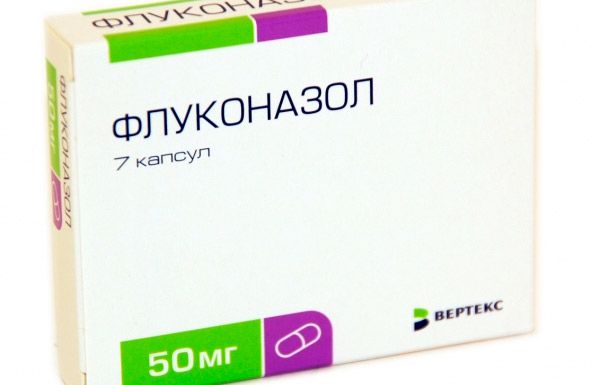
- It is not recommended to take during pregnancy and lactation period. Since the active substances fluconazole penetrate the placental barrier and are excreted in breast milk, which adversely affects the development of the child. If the drug is prescribed to the newborn, there should be a long break between doses.
- In the treatment of elderly patients, medical dosage adjustment is required. A special dose selection is also necessary for patients with kidney and liver diseases. Fluconazole is not prescribed to patients who take Cisapride. The average daily dose is 0.1-0.6 g, the duration of treatment depends on the symptomatology of the disease.
When taking Fluconazole for preventive purposes, a small dose of the drug is used. Take Fluconazole is possible only for medical reasons, as self-medication can lead to aggravation of symptoms.
Flucostat from thrush
Flukostat is an antifungal drug with an active substance fluconazole. 50-150 mg, a syrup and a solution for intravenous administration are produced in the form of tablets. An antifungal agent is effective against fungal infections caused by Candida spp., Cryptococcus, Microsporum spp., Trichophyton spp., Coccidioides immitis, Histoplasma capsulatum.
- After ingestion, the substance penetrates into the body fluids and tissues, and its bioavailability is 90%. Concentrates Flucostat in blood plasma, and the concentration in saliva, sweat fluids and sputum is equal to the concentration in the blood. It is excreted by the kidneys, about 80% is released unchanged in the urine.
- The mode of administration and dose depend on the disease to be treated. When vaginal candidiasis and chronic thrush, it is recommended to take 150 mg for 1-3 days. If the thrush recrudes, then one tablet of Flucostat is only 150 mg once every six months. When treating a generalized form, the dosage can be from 400 mg in the first day and 200 mg throughout the rest of the treatment.
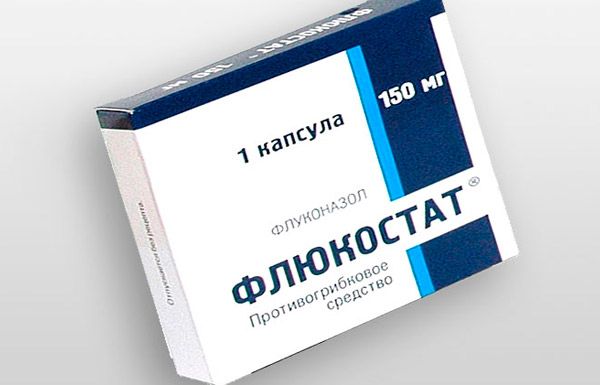
- With special care, it is necessary to apply to patients with lesions of the kidneys and liver. During pregnancy and lactation, treatment with the use of the drug is possible only by medical authorization. To treat an overdose it is necessary to perform gastric lavage, and symptomatic therapy.
- As for specific indications for use, Flucostat may cause a hepatotoxic effect that leads to death. But this is possible only if the drug is taken not for its intended use with a significantly higher dosage.
- The use of flucostat may cause side effects: vomiting, convulsions, flatulence, nausea, abdominal pain, allergic skin reactions. For the treatment of overdose, you must refuse to take and conduct symptomatic therapy.
With special care, the drug should be taken with other drugs, since drug interaction can cause side reactions and symptoms of an overdose. Store Flukostat is necessary at a temperature of 5 ° to 30 ° C, and the shelf life is two years, from the production date indicated on the package.
Clotrimazole from thrush
Clotrimazole is a synthetic drug that belongs to the second generation of antimycotics, i.e., imidazole derivatives. 100, 200 and 500 mg of active ingredient are produced in the form of vaginal tablets, in the form of suppositories, ointments, creams and solutions for intravenous administration. Clotrimazole has a wide spectrum of action and effectively fights against fungal lesions, slowing their growth. It is active against most pathogens of fungal infections.
- The drug is poorly absorbed through the digestive system, which is why the most popular form of release is vaginal tablets and suppositories. Clotrimazole concentrates in tissues and effectively fights infection.
- The main indications for the use of candidiasis, vulvovaginal thrush, trichomoniasis, skin lesions of the thrush, candidomycosis lesions of the feet and palms, nails, fingers, lichen, erythrasma. It is also used for the prevention of fungal diseases.
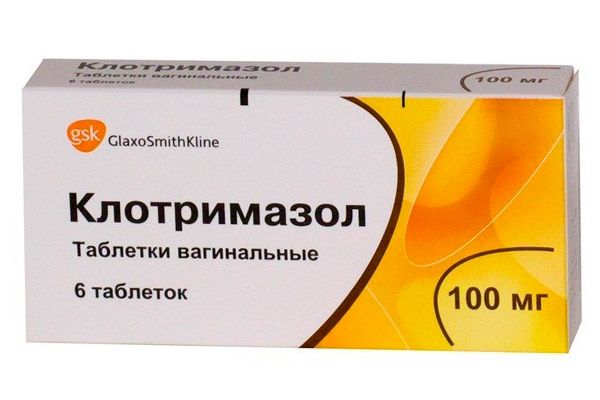
- Clotrimazole is contraindicated in pregnancy (in the first trimester) and during lactation. If the rules of reception are not observed, side effects occur, such as: allergic reactions, itching, rash, skin peeling, urticaria. When treating vaginal yeast infection, the drug should be discontinued during menstruation.
- The method of administration and dosage depend on the disease to be treated and its symptoms, on the availability of contraindications to use, on the patient's age and the presence of chronic diseases. The average course of treatment takes 5 to 10 days. When using ointments for external use, the duration of treatment can be up to 20 or more days.
Pimafucin with thrush
Pimafucin is used as an antimicrobial antibiotic. The active substance, natamycin, is a polyene antibiotic. 100 mg of active ingredient are produced in the form of tablets, in the form of cream and vaginal suppositories.
- The main indications for use: prevention and treatment of candidiasis, treatment of vaginal yeast infection, noninvasive candidiasis of the intestine and mucous membranes.
- Contraindicated apply with increased sensitivity to the active substance and with systemic candidiasis. With extreme care, the antifungal agent is used for kidney and liver disease.
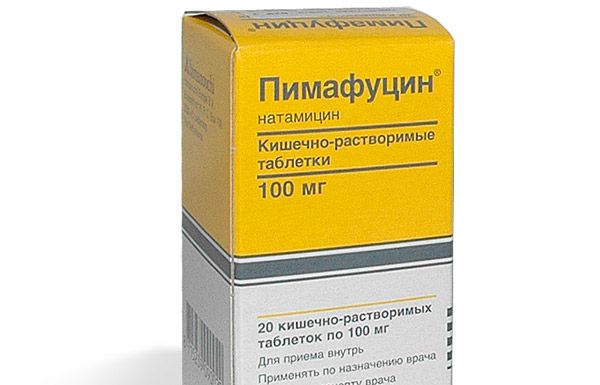
- The method of administration and the dose of Pimafucin depends on the disease to be treated and the form of release. If the drug is used to treat bowel diseases with Candida fungi, patients take one tablet four times a day. When treating vaginal thrush take one tablet for three to seven days.
Pimafucin is valued for its effectiveness in treatment, minimal side effects and contraindications. But, like all medicines, this drug is recommended only after consultation with a doctor.
Nystatin from thrush
Nystatin is an effective drug that is used to treat superficial forms of candidiasis. Refers to polyene antibiotics and antimycotics of natural origin. Nystatin is released in the form of tablets, vaginal and rectal suppositories and ointments. This allows you to choose the most convenient form of the drug for effective treatment.
- Nystatin is absorbed in the gastrointestinal tract and has low toxicity. It is active against Candida spp. Nystatin destroys fungal microorganisms and is not addictive, so it is effective in treating any form of the disease.
- The method of administration and dose are prescribed individually for each patient. Tablets are forbidden to chew and at reception it is necessary to wash down with a plenty of water. The interval between doses of the drug should be at least six hours. The course of treatment takes from 10 to 14 days, but for each patient the duration of treatment is selected individually.
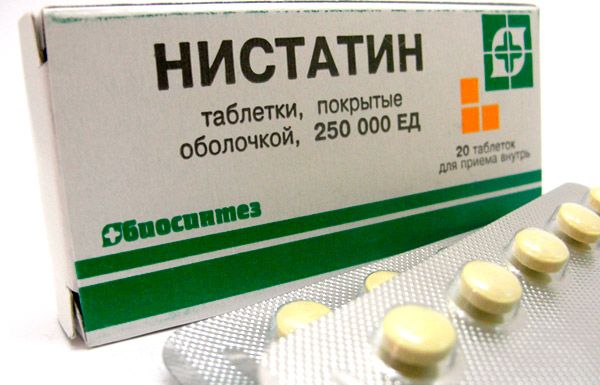
- The main indications for the use of the drug are candidiasis lesions of various locations, vaginal candidiasis, thrush in the mouth, digestive tract, respiratory and skin lesions. They are also used for the prevention of the disease when it recurs.
- Due to non-compliance with the dosage or the presence of contraindications to its use, Nystatin causes nausea, vomiting, allergic reactions to the skin, frequent stools, burning. Nystatin is contraindicated for use when hypersensitivity to the active substance. From taking the drug must be discarded in patients under the age of five years. Also, it is contraindicated to take Nystatin with Clotrimazole, since the latter reduces the effectiveness of the drug.
Fucis from thrush
Fucis is prescribed to many patients. Refers to a group of broad-spectrum antifungal agents. Its active substance fluconazole is active against Candida spp. And in generalized forms of the disease.
- After application, Fucis is absorbed in the gastrointestinal tract, its bioavailability is 90% or more. It can be taken either during meals, or before or after a meal, this does not affect the absorption of the drug. The maximum concentration of Fucis in blood plasma is observed 30-60 minutes after administration.
- Used for treatment: thrush of various localization and form, fungal and infectious diseases of the respiratory system, genitourinary system, as well as for the prevention of candidiasis.
- Dosage and duration of treatment depend on the individual characteristics of the patient's body and the symptoms of the disease. Since the drug is available for 50, 100, 150 and 200 mg fluconazole, the treatment can be from 1 to 10 days, and the reception - from three to one tablet per day.
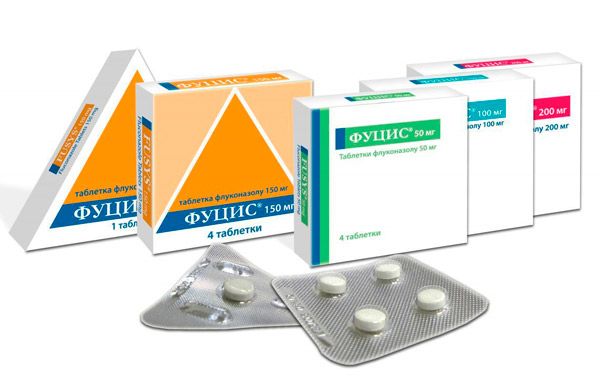
- Fucis can provoke a number of side effects, such as headache, convulsions, arrhythmia, nausea, vomiting, allergic skin reactions, itching, alopecia. It can provoke an increase in the level of cholesterol and triglycerins in the blood. The drug is contraindicated in pregnancy and lactation, in patients under seven years of age, as well as for patients whose work is related to the management of machinery or vehicles.
- Due to non-compliance with the rules for taking Fucis, patients experience side effects such as: headache, hallucinations, dizziness. When treating symptoms of an overdose, patients are washed with stomach, and have symptomatic treatment.
Difluzole from thrush
Difluzole has an antifungal and highly specific effect. The active substance is fluconazole. The main indications for the use of Difluzole: cryptococcosis, thrush of any type and any localization, endemic mycoses, prevention of fungal diseases.
- Produced in the form of tablets of 150 mg. A long half-life (30 hours), suggests that Difluzol should be taken once a day.
- When treating vaginal candidiasis, take 150 mg for three days. If thrush affects the mucous membranes, take 50 mg for 2-3 weeks. In the treatment of fungal diseases in newborns, Difluzol is taken every three days for four weeks.
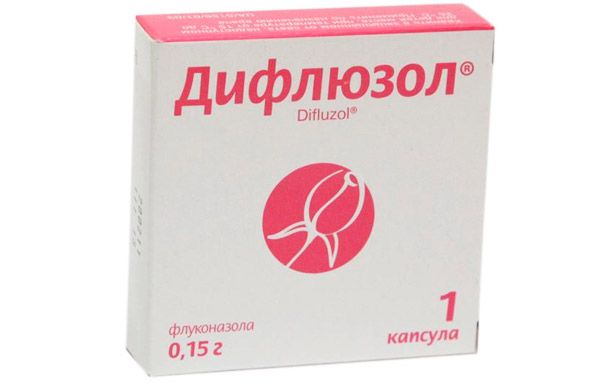
- Contraindicated taking during pregnancy and lactation, as the active substances penetrate the placental barrier and adversely affect the development of the child. With extreme caution, pills from thrush should be taken by patients with cardiovascular diseases, kidney and liver pathologies.
- Keep Difluzole from yeast infection at room temperature. The shelf life of the medicinal product is four years, from the production date indicated on the package.
 [35]
[35]
Mycosis from thrush
Mycosyst is another antifungal drug with an active substance fluconazole. Issue in the form of syrup, solution for infusions and tablets of 50, 100 and 150 mg. Pharmacodynamics and pharmacokinetics of Mycosyst is fully consistent with Fluconazole.
- The main indications for the use of Mycosyst are fungal lesions of various locations, but are most often used for treatment. Tablets from the yeast help to cure chronic and acute recurrent vaginal candidiasis, visceral candidiasis, candidiasis of the eyes, lesions of the abdominal cavity organs, respiratory system and mucous membranes.
- The dosage of the drug and the duration of treatment depend on the results of the analyzes and symptoms of the disease. For the treatment of recurrent thrush, a course of three 150 mg tablets is prescribed. A similar regimen is used when there are early symptoms of the disease (itching, redness, inflammation of the mucous membrane). The duration of treatment can be from 3 days to 6 months (in the treatment of cryptococcal meningitis, foot mycosis and smooth skin).
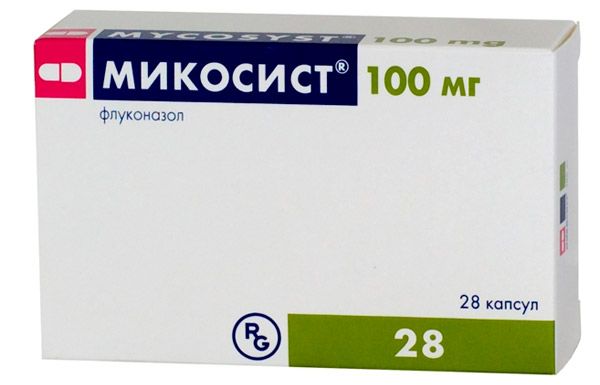
- In some patients, the use of the drug causes a number of side effects. This may be due to the individual intolerance to the antifungal agent or the failure to comply with the dosage and the rules for taking the drug. The main side effects: nausea, convulsions, headache, vomiting, increased levels of bilirubin. Rarely there are violations of the kidney and liver, pathology in the blood-forming organs and allergic reactions.
- The main contraindications to the use of Mycosyst are: hypersensitivity to the active substance, kidney and liver disease, pregnancy and lactation. It is not recommended to take Cisapride, Astemizolum and Terfenadine simultaneously.
- Mycosite is allowed to be taken with oral contraceptives, since such interaction does not cause side reactions. With special care, Mikosist must be taken with hypoglycemic drugs, since it is possible to develop hypoglycemia. When applied with Rifampicin, the antifungal agent is rapidly excreted from the blood, therefore an increase in the dosage of Mycosyst is required.
- Keep the tablets from thrush recommended in a dry, protected from sunlight, observing the temperature regime from 5 ° to 30 ° C. The shelf life of Mikosista is two years.
Nizoral from thrush
Nizoral is a popular antifungal agent with a wide spectrum of action. The active substance is ketoconazole. It is active against: Pityrosporum orbiculare, Cryptococcus spp., Epidermophyton floccosum, Microsporum spp., Candida spp.
- The main indications for the use of antifungal agents: treatment and prevention of mycoses, fungal infections of the mucous membranes of the body, treatment and prevention of candidiasis, treatment of skin mycoses, soft tissues and nails. Used to prevent fungal infections in patients with a weakened immune system.

- Take pills from thrush is necessary during meals. The maximum daily dose of Nizoral for adults is 200 mg, but with special indications, the dosage can be increased to 400 mg. The dose of the drug for children weighing 15 to 30 kg, is 100 mg Nizoral per day. The duration of treatment depends on the disease. With the symptoms of a beginning thrush, it is recommended that you take three 150 mg tablets. In chronic and generalized candidiasis appoint 400 mg for five days.
- Side effects cause headache, nausea and vomiting, dizziness, paresthesia, menstrual irregularities, thrombocytopenia. In some cases, Nizoral causes skin itching, a burning sensation and a rash on the skin.
Nizoral is contraindicated to use with increased sensitivity to the active substance. An antifungal agent is not recommended for treatment of thrush in patients with kidney and liver diseases. Contraindicated for pregnant women and patients older than 50 years.
Liverol from thrush
Liverol is an effective antifungal drug with an active substance ketoconazole. They are released in the form of vaginal suppositories, as this provides the most effective therapeutic effect. Livarol is active against staphylococcal, streptococcal and a number of other fungal infections.
- Liverol is used to treat and prevent vaginal candidiasis. Used for the prevention of recurrent thrush and for the treatment of reduced resistance of the body due to prolonged use of antibiotics.
- The method of application and dosage of the drug depend on the symptoms of the disease and the individual characteristics of the patient's body. It is recommended to use Livarol before bedtime. For the treatment and prevention of disease, it is enough to introduce one suppository for 3-6 days. For the treatment of recurrent chronic candidiasis, one suppository should be used for 10 days.
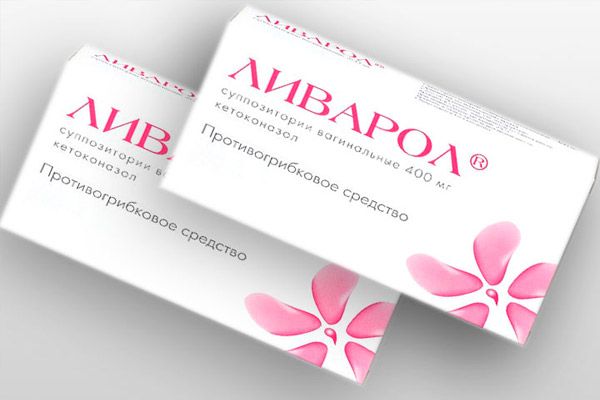
- Livarol is used with extreme caution during pregnancy and lactation. It is forbidden to use in the early stages of pregnancy, and when treating a disease in the second trimester of pregnancy, treatment should be under the supervision of a doctor.
- Due to non-compliance with the dosage of the drug and the rules of its use, side effects are possible. Livarol causes irritation of the vaginal mucosa, itching, skin rash and hives.
- The main contraindications to the use of Livarol: the first trimester of pregnancy, increased sensitivity to the active substance. Please note, in the treatment of chronic thrush, medications must be taken by both sex partners.
- Liverol must be stored in a dry dark place, at a temperature of up to 25 ° C. Shelf life is two years. Liverol is not recommended for use without medical authorization.
Irunin from thrush
Irunin is a broad-spectrum medicinal product, with the active ingredient itraconazole. Produced in the form of vaginal tablets of 200 mg, and tablets for oral administration of 100 mg. Irunin is a synthetic antifungal drug. The action of the agent is based on suppression of the synthesis of cell membranes of fungi. The drug is active against yeast-like fungi, Candida fungi, mold fungi, dermatophytes.
- The main indications for the use of Irunin: fungal keratitis, candidiasis of various locations, fungal keratitis, systemic aspergillosis, sporotrichosis, mycoses, pityriasis, deep visceral candidiasis. When vaginal candidiasis should be used 2 tablets of thrush at 200 mg twice a day for two to three days. For prevention, it is enough to take one of Irunin's pill.
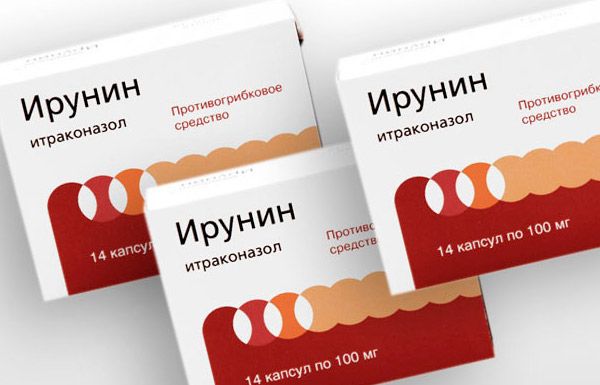
- During pregnancy the drug is prescribed for the treatment of systemic mycoses. But the use of the medicine is possible only after the doctor's permission and in the case when the therapeutic benefit for the mother is more important than the potential risks for the baby. Irunin causes side effects. Most often, patients appear: nausea, constipation, headache, itching, rash, dizziness, allergic reactions.
- Like all antifungal drugs, Irunin has a number of contraindications to use. It is forbidden to use for patients with hypersensitivity to the drug, during menstruation. Tablets from the thrush can not be taken without medical permission to patients with kidney and liver diseases. With special care, Irunin is prescribed to children and elderly patients.
- Irunin is not allowed to be taken concomitantly with such medications as: Astemizole, Cisapride, Pimozod, Midazolam. When used simultaneously with calcium channel blockers, special care must be taken to monitor the condition of the body. When interacting with antacids, Irunin is recommended to take with a break in two or three hours.
Mycomax from thrush
Mikomaks is a drug with an active substance fluconazole. The peculiarity of the drug is that it is much more effective than other antifungal agents. The drug is active against yeast-like Candida fungi, as well as Cryptococcus, Microsporum, Trichophyton. The drug is used to treat endemic mycoses that are caused by Blastomyces dermatitidis, Coccidiodes immutis, Hystoplasma capsulatum.
- The drug is well absorbed, and its bioavailability is 90%. The maximum concentration of Mycomax in the blood plasma is reached after 1-1,5 hours after taking the drug on an empty stomach. The drug is effectively and evenly distributed throughout the body and binds to blood proteins by 10-12%. The medicine is withdrawn unchanged in the urine. Mycomomax is released in the form of tablets from the thrush with a dosage of 100 and 150 mg of active ingredient and in the form of a solution.
- The main indications for the use of an antifungal agent: the prevention and treatment of fungal diseases. Prophylaxis and treatment of systemic candidiasis, candidiasis of the mucous membranes, candidiasis of the genital organs (chronic, acute, generalized). Mycomax effectively fights with dermatomycotic lesions of the skin of feet, nails and inguinal areas, cryptococcal infections and endemic mycoses.
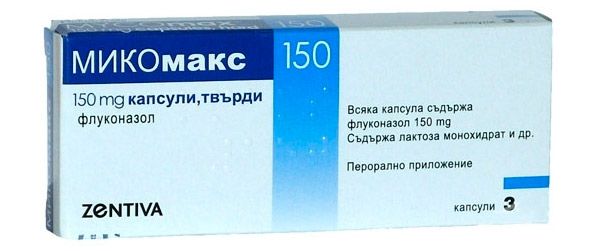
- The method of administration, dosage and duration of treatment depend on the severity of the fungal infection and the symptoms of the disease. The drug causes side effects: anaphylactic reactions, diarrhea, flatulence, headaches, skin rashes. Treatment of side effects is symptomatic.
- The main contraindications to the use of the drug are based on the action of the active substance fluconazole. Mycomax is not recommended for patients under 16 years of age, people with kidney and liver disease. Also, the antifungal agent is contraindicated for pregnant women and during lactation. Symptoms of overdose cause a headache, pathologies of the gastrointestinal tract, allergic reactions to the skin. Treatment of symptoms of an overdose is symptomatic and involves the refusal to take Mikomaks.
Pills for the prevention of thrush
Tablets for the prevention of thrush can eliminate the symptoms of recurrent and systemic candidiasis. Tablets for prevention are needed for patients with a reduced immune system, frequent infectious and fungal diseases that affect the genitals and mucous membranes. Let's look at effective antifungal agents that are used to prevent disease.
- Ginalg - the medicine is released in the form of vaginal tablets. It can be used both for treatment and for the prevention of fungal diseases. The course of treatment is 10 days, and the preventive course is 1-3 days.
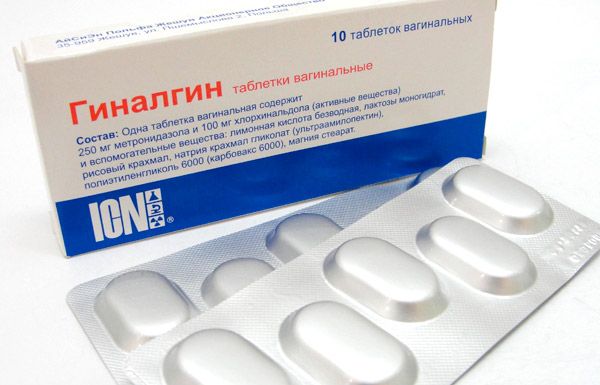
During the preventive reception of Ginalgin, the sexual partner should take Metronidazole. Prolonged use of the drug may cause itching and allergic reactions. It is contraindicated during pregnancy.
- Diflucan - tablets for the prevention of thrush any localization and form. The drug is prescribed for the syndrome of acquired immunodeficiency and candidiasis. The course of prevention takes from 3 to 5 days. On the first day, 100 mg of Diflucan are taken, and in subsequent 200 mg. Side effects cause headache, diarrhea, flatulence, nausea. The drug is contraindicated to use during pregnancy and lactation.
- Klion-D - antifungal vaginal tablets, which are used to treat and prevent candidiasis, vaginitis and other fungal infections. Standard course of treatment - 10 days, preventive course - 3-5 days.
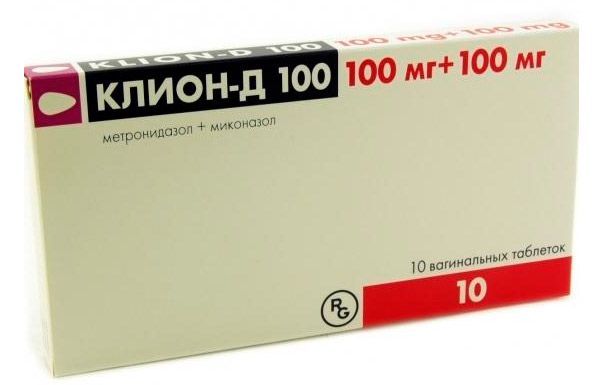
With an overdose, Clion-D causes nausea, allergic reactions, a feeling of bitterness in the mouth, and leukopenia. Take medication during pregnancy is contraindicated.
- Macmirror - tablets for prevention. Used to treat infections of the genitourinary system and secretions that are caused by bacteria and fungi.
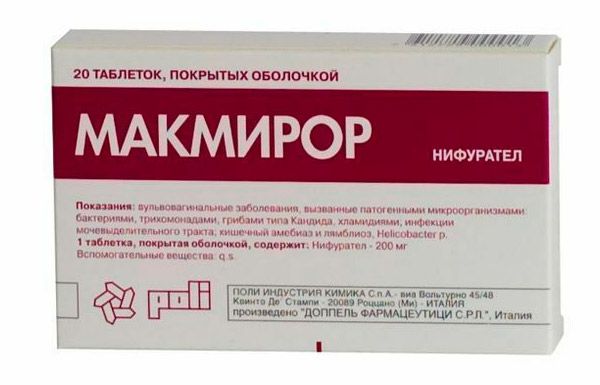
Preventive course of treatment - three days. Macmirror is not allowed during pregnancy and lactation.
- Orungal - is available in capsules and effectively fights against fungal diseases. When preventive, take one tablet of 200 mg for three days. The medicine causes such side effects as: rash, constipation, headache and dizziness. Treatment of side effects and overdose is symptomatic. During pregnancy, the drug is prescribed only in extreme cases, with acute manifestations of thrush.
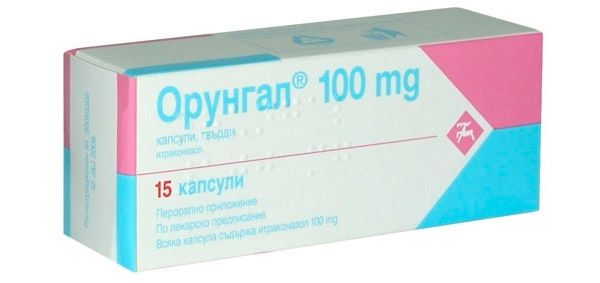
In addition to taking tablets from thrush, the prevention of fungal disease involves compliance with diet and hygiene rules. Let's look at the main recommendations that will help prevent relapse of the disease and other vaginal fungal lesions.
- Limit or completely refuse the use of sugar. In the diet should be dairy products with live acidophilic lactic acid bacteria. Most often eat fruits that are rich in vitamins A. Since this vitamin is an excellent prophylaxis of thrush, which does not cause side effects and has no contraindications.
- Pay special attention to intimate hygiene. Dampening should only be from the front to the back. During menstruation, it is better to use gaskets and change them as often as possible. It is not superfluous to refuse hygienic gels, sprays and deodorants, which irritate the mucous membrane of the vagina.
- Wear linen only from natural materials, refuse thongs and synthetic panties. Under the ban fall and tight jeans. Also it is forbidden to stay in a wet swimsuit for a long time, since this negatively affects the microflora of the vagina and can provoke the appearance of the disease. Sleep is necessary without underwear, instead of pajamas, give preference to nightgowns made of natural fabrics.
Dosing and Administration
The way of administration and dosage of tablets from yeast infection depends on the drug chosen, the treatment plan made by the doctor, the patient's age and other individual characteristics. To date, among antifungal medications that treat the disease, there are pills that help get rid of the disease at one time. Such rapid treatment is also used for preventive purposes. This is relevant for patients who have a recurrent form.
In order for pills from thrush to really help get rid of the disease, you need to see a doctor. Only the doctor will be able to choose the right dosage, which will destroy the fungal lesions. But for this, the patient needs to take tests (blood, smears) and undergo an examination. As a rule, the duration of the use of tablets from thrush does not take more than 10 days, and the dosage can be from 50 mg to 400 mg of the drug, from one to three times a day.
Tablets from thrush for pregnant women
Tablets from thrush for pregnant women can cure an unpleasant fungal disease, which is a threat to pregnancy and the normal development of the child. The disease manifests itself in the form of lesions of the vagina. Candidiasis occurs in 40% of pregnant women. When choosing tablets, special attention should be paid to ensure that the drug is non-toxic, as this negatively affects the development of the child. Tablets should be effective and have a minimum of side effects and contraindications.
Indications for the use of tablets from thrush during pregnancy should be based on the results of tests performed, the timing of pregnancy and symptoms. The most commonly used tablets are Nystatin, Natamycin, Sertaconazole. In especially severe cases of the disease, pregnant women are prescribed Pimafucin. But from the administration of Ketoconazole, Fluconazole and Miconazole should be abandoned, since the drugs have a number of negative side effects on the development of the baby. In addition to antifungal drugs, the pregnant woman must comply with the diet, hygiene rules and a number of other recommendations that will help cure the disease.
Contraindications to the use of tablets from thrush
Contraindications to the use of tablets from thrush are based on individual sensitivity to the active substance of the drug. Many tablets are forbidden to take during menstruation, as this negatively affects the cycle and the hormonal system as a whole. Another contraindication for antifungal medicines is the period of pregnancy and lactation. The ban is based on the fact that many drugs are toxic and can adversely affect the development of the child and the state of women's health, and in some cases, provoke miscarriage or premature birth.
Tablets from thrush are forbidden to take with drugs that reduce blood clotting. Contraindications concern the age of the patient. Some pills are prohibited for children and the elderly. And kidney and liver disease is a ban on taking any antifungal drugs. If you do not follow the instructions of the instructions and take medications for treatment in the presence of contraindications, this will lead to the appearance of side uncontrolled symptoms. It is also contraindicated to self-medicate and take your own pills without consulting your doctor. As this can lead to the fact that the disease will take a chronic form, and cure it will be problematic.
 [4]
[4]
Side effects of tablets from thrush
Side effects of tablets from yeast infection occur if the conditions for using the drug have not been met, the dosage, duration of administration, or contraindications to the use of the drug are broken. Most often, the symptoms of overdose manifest themselves in the form of nausea, diarrhea, vomiting, headaches. In especially severe cases, side effects cause hallucinations, disorders of the nervous and cardiovascular system, allergic reactions to the skin.
If you have any side effects, stop taking the medication and get medical help. As a rule, the treatment of side effects is symptomatic.
Overdose
Overdosage of tablets from yeast infections is possible if the conditions for taking antifungal drugs have not been met. Increased dosage and prolonged treatment, also cause an overdose. The main symptoms of an overdose: nausea, vomiting, diarrhea, headaches and hallucinations. In rare cases, patients have complications in the kidney and liver, the level of bilirubin and cholesterol in the blood. Since almost all the tablets from thrush have the same mechanism of action, the side effects and symptoms of an overdose are similar.
To treat an overdose, the patient is washed with a stomach, drip drugs that help to remove the antifungal agent from the body. With a slight symptom of an overdose, patients are prescribed diuretics that help remove the decay products from the body. In especially severe cases, patients undergo hemodialysis, that is, purification of blood and hospitalized for further therapy.
Interactions with other drugs
The interaction of tablets from thrush with other medicines is possible only by medical permission. Antifungal agents with simultaneous admission with warfarin increase prothrombin time, that is, the level of clotting of the blood.
When used with hypoglycemic oral drugs, the half-life of drugs is increased.
- When the drug with hydrochlorothiazide is used, the concentration of antifungal agents in the blood plasma increases, so a dose adjustment is necessary.
- Virtually all antifungal agents normally interact with combined oral contraceptives.
- With special care are taken with Teofillinom and Tsizapridom. Since such interaction can lead to adverse reactions from the cardiovascular system or an increase in the toxicity of the antifungal agent.
When using tablets from thrush with any medications, it is necessary to consult a doctor and carefully read the instructions of the medicine. This will avoid the occurrence of side effects and symptoms of an overdose.
Storage conditions
Conditions for storing tablets from thrush correspond to the rules for storage of any other tablet preparations. Tablets should be stored in a dry, cool place, which is protected from sunlight and not accessible to children. Also, antifungal medicines should be stored in their original packaging. When storing vaginal tablets, special attention should be given to the temperature regime. Drugs are stored at a temperature of up to 25 ° C.
Failure to comply with the storage conditions of tablets from thrush leads to the loss of their medicinal properties. In addition, due to improper storage, the drug can change its appearance, consistency and acquire an unpleasant odor. In this case, take the medicine is prohibited. Since the use of a spoiled medicine will lead to the emergence of uncontrolled adverse symptoms that will only exacerbate the course of the disease.
Shelf life
Shelf life of the tablets from the yeast infection is indicated on the package of the antifungal agent. As a rule, the shelf life is from two to five years. The suitability of the medication is entirely dependent on compliance with storage conditions. If the tablets have changed color or have got an unpleasant smell, but the expiration date has not passed yet, such medicines are forbidden to accept. As this indicates that the storage conditions of the medicine have been violated. After the expiry date, the medicine must be disposed of.
Price tablets from thrush
The price of tablets from thrush depends on the effectiveness of the drug, the form of release (vaginal, oral) and the amount of active ingredient in the antifungal drug. Also, do not forget about the number of tablets in the package. Some medicines are sold three tablets per pack for preventive treatment of the disease, others one by one. But one and the same product can be purchased in a package with a large number of tablets and at a completely different price.
The price of tablets from thrush depends on the toxicity of the drug and the spectrum of its action. If the drug is approved for admission during pregnancy and lactation, the price of such an antifungal agent is high. There are both cheap but effective medicines, as well as expensive medicines that help cure infectious and fungal lesions of different locations. Let's look at the most popular tablets from thrush and their cost.
|
A drug |
Price tablets from thrush |
|
Orungal |
From 225 UAH. |
|
Fucis |
From 10 to 45 UAH. |
|
Clion-D |
From 50 to 100 UAH. |
|
Zalain |
From 70 to 150 UAH. |
|
Kanesten |
From 20 to 60 UAH. |
|
Ovulum |
From 80 to 120 UAH. |
|
Itraconazole |
From 80 to 200 UAH. |
|
Sertaconazole |
From 50 to 150 UAH. |
|
Miramistine |
From 20 to 50 UAH. |
|
Terjinan |
From 50 to 200 UAH. |
|
Macmirror |
From 80 to 210 UAH. |
|
Diflucan |
From 90 to 700 UAH. |
|
Ginalgin |
From 30 to 60 UAH. |
|
Mikomaks |
From 30 to 100 UAH. |
|
Irunin |
From 260 to 400 UAH. |
|
Livarol |
From 60 to 130 UAH. |
|
Nizoral |
From 80 to 200 UAH. |
|
Mycosyst |
From 100 to 800 UAH. |
|
Diflucol |
From 20 to 60 UAH. |
|
Nystatin |
From 8 to 15 UAH. |
|
Pimafucine |
From 60 to 220 UAH. |
|
Clotrimazole |
From 5 to 10 UAH. |
|
Flucostat |
From 120 to 210 UAH. |
|
Fluconazole |
From 5 to 80 UAH. |
|
Tinidazole |
From 10 to 50 UAH. |
|
Macmirror |
From 80 to 200 UAH. |
|
Ginalgin |
From 30 to 60 UAH. |
Tablets from thrush are modern antifungal medicines that help to cure candidiasis of any localization, form and in patients of any age. Tablets are recommended to be taken only by medical permission, after passing a number of tests and medical examination. The duration of treatment with the use of tablets can be from one to ten days. It is contraindicated to take medicines independently.
Attention!
To simplify the perception of information, this instruction for use of the drug "Pills from thrush" translated and presented in a special form on the basis of the official instructions for medical use of the drug. Before use read the annotation that came directly to medicines.
Description provided for informational purposes and is not a guide to self-healing. The need for this drug, the purpose of the treatment regimen, methods and dose of the drug is determined solely by the attending physician. Self-medication is dangerous for your health.

